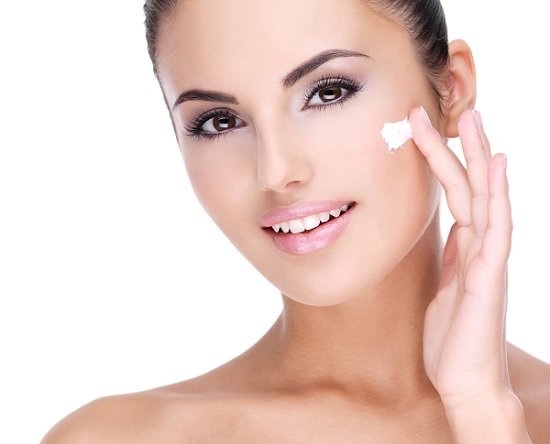Retinol 101: How to Get the Benefits Without the Drawbacks
Sure, retinol isn’t the latest breakthrough skincare find—it’s been around for a while and is no longer splashing across beauty magazine covers. But that doesn’t mean that it’s not still super effective—even more so than so many of the trendy oils and extracts making the news.
Why it Works
Retinol, alpha-hydroxy acids and salicylic acid improve your skin through different mechanisms of action: alpha-hydroxy and salicylic acids exfoliate by increasing the rate at which you slough off dead skin cells. Retinol, on the other hand, stimulates cell turnover from the deeper layers. It is considered the golden standard when it comes to topical anti-aging treatments. It is clinically proven to increase collagen production, diminish wrinkles, improve uneven skin tone, improve firmness and reduce pore size.
There are numerous retinoid products on the market, but not all of them work the same on your skin. Of course, prescription products are the most effective, but if you don’t want to have to see a doctor to treat your skin, you can still get these products at your local beauty supply store. They are widely available in creams, gels, masks or many other forms. So how do you know what to use? We’ve done the research and put together this list of tips for you:
Stick to Retinol
Not all retinoid products are the same. You will find products with retinol, retinoic acid or pro-retinols (like retinyl palitate) in many over-the-counter products. Stick to retinol. Your body converts it to retinoic acid, so it may take longer to see results, but it has the same biochemical effect and is much gentler on your skin.

Use Retinol for Acne Treatment
Likely you’ve heard about well-marketed acne products like Proactiv, but some reviews suggest it may not be your best option for clearing up your skin. You may be better off using a less-expensive over-the-counter acne treatment. And you can also consider incorporating a retinol product. In fact, recent research has indicated that administering alpha hydroxy acids (AHAs) with retinoids can be an extremely effective treatment. In an October 2015 clinical study, 27 women with mild to moderate acne were observed. They all used a 3-product regimen, consisting of AHA + retinoids, salicylic acid and lactic acid, and saw a significant reduction in acne after four weeks and a “highly significant” reduction after 8 weeks.
Do Not Use Retinol in the Daytime
Retinol causes sensitivity to ultraviolet radiation, so these products should not be used in the daytime. Sun exposure after retinol treatment will actually increase aging in your skin by making you more susceptible to UV damage. Avoid any daytime moisturizers that contain retinol because they will actually do more harm than good. Also skip retinol face cleansers. They’re a waste of money since the product won’t stay on your skin long enough to work. Stick with night creams and serums, instead. (And get plenty of beauty rest.)
Try Retinol Peels
Retinol peels can be a good alternative to nightly retinol use. They are typically used just once a week and can result in significant skin improvement. A June 2015 study conducted at the Medical University of Lodz in Poland found that retinol peels help improve skin in older women. Researchers studied a group of women, aged 50-69, who all underwent three retinol peel treatments applied at three-week intervals, and found a statistically significant increase in the amount of skin surface lipids, which contribute to healthy, smooth-looking skin.
Start Slowly
Strong retinol products can cause redness and peeling, especially when you first start using them. It is possible to use retinol daily, without your face peeling off, if you ease yourself into the regimen.
Start slowly, using the product only every three to five days. As your skin adjusts, you can increase the frequency of use until you are able to tolerate using it every night. You can even dilute the retinol product with regular moisturizer when you first start. Blend your moisturizer with the retinol cream in the palm of your hand before applying it to your face and neck.
Make sure to use your retinol cream regularly, not intermittently. When your skin starts to peel, keep using it, or it will just peel again when you start to use it. Give yourself time to adjust and your skin should recover after the first peeling episode.
Don’t get ripped off
Retinol rapidly breaks down when exposed to the air and to UV rays, so make sure any product you use comes in a tightly sealable container or pump. Once opened, use it within a few months. And don’t waste your money on products that contain other, less-potent retinoids. Retinol is your best bet.
Bonus Tips:
Take care of your face when using retinol products. Your skin will become very susceptible to peeling, so avoid anything that can cause additional abrasion like harsh scrubs or exfoliating devices. If you experience peeling, do not scrub or pick at your skin to remove it. Just wait and the peeling will subside.
Also avoid waxing, microdermabrasion or other peels while you are using retinol treatments. You could damage or even lose a layer of skin. If you are planning to have any of these treatments done, you should discontinue retinoid use for five to seven days prior.
And, finally, wear sunscreen every single day. You should be doing this already, but it is especially important when using retinol products.

